Indigenous Governance Database
Navajo Nation
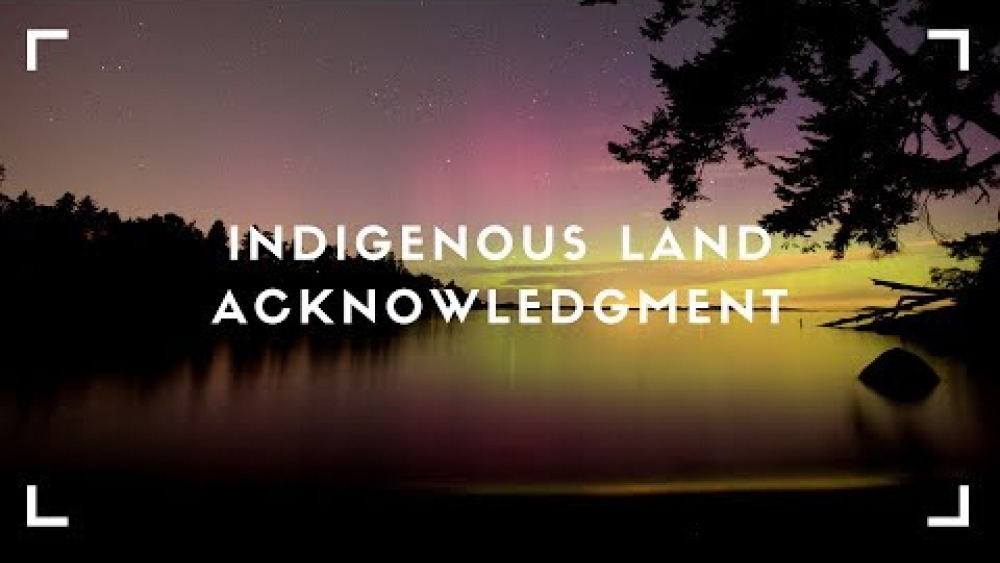
Indigenous Land Acknowledgment
Native Governance Center co-hosted an Indigenous land acknowledgment event with the Lower Phalen Creek Project on Indigenous Peoples’ Day 2019 (October 14). The event featured the following talented panelists: Dr. Kate Beane (Flandreau Santee Dakota and Muskogee Creek) Mary Lyons (Leech Lake…
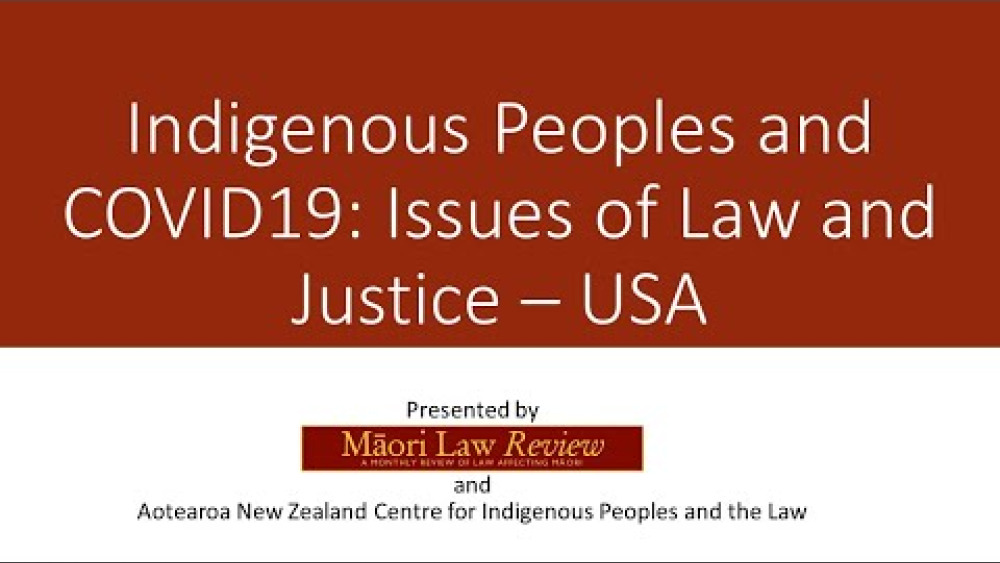
Indigenous Peoples and COVID-19: Issues of Law and Justice – USA
A co-production of New Zealand's Victoria University of Wellington and the Aotearoa New Zealand Centre for Indigenous Peoples and the Law, the "Indigenous Peoples and COVID-19: Issues of Law and Justice" is a series of conversations focused on the experiences of Indigenous Peoples with COVID…
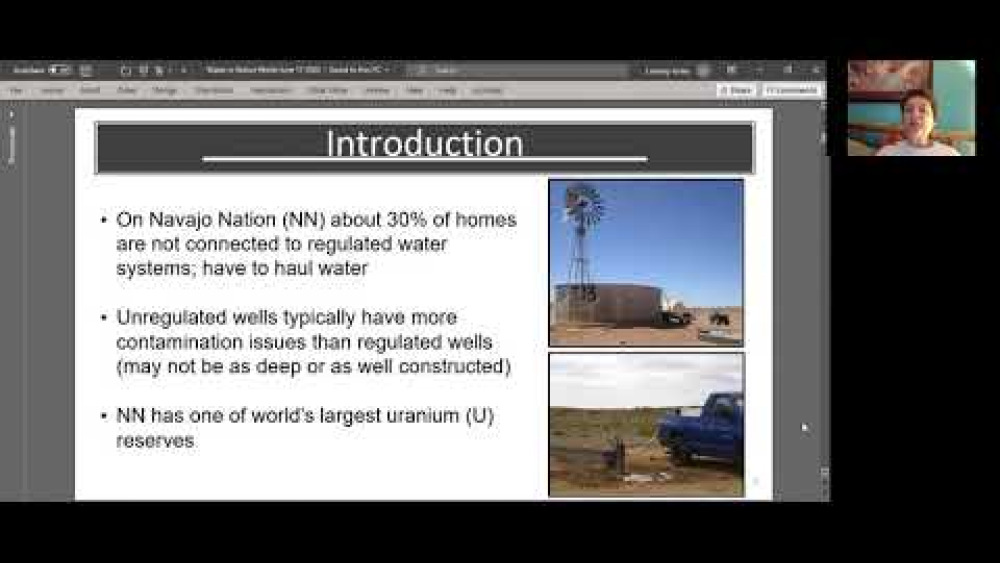
Water in the Native World Webinar Series: Dissolved Uranium and Arsenic in Unregulated Groundwater Sources – Western Navajo Nation
“Water in the Native World,” a special issue on tribal water research was just released by the Journal of Contemporary Water Research and Education. This is the second time, Dr. Karletta Chief, the PI of the Community Engagement Core of the University of Arizona Superfund Research Center (UA SRC)…
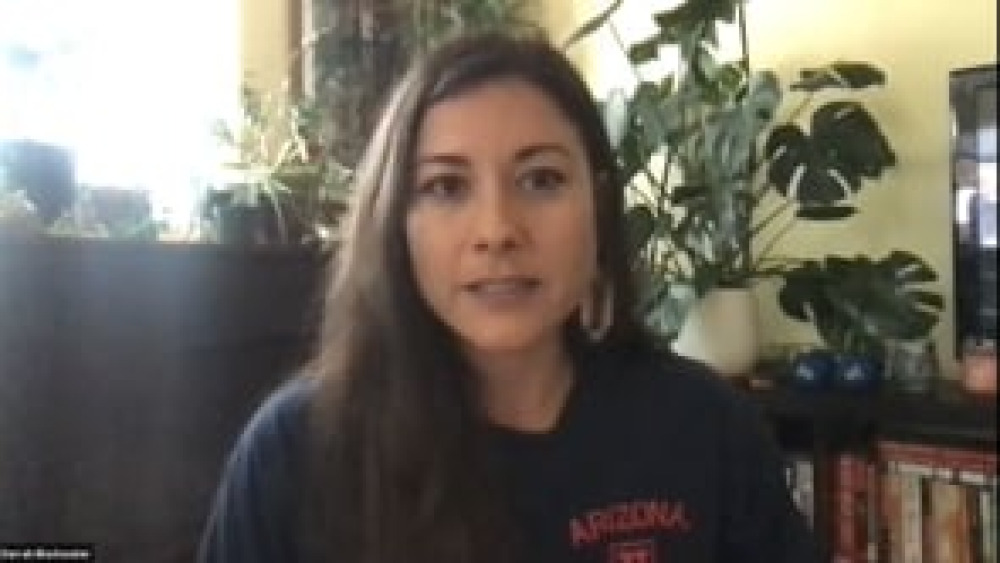
Indigenize the Internet: How to close the digital divide by respecting tribal sovereignty by Darrah Blackwater
Broadband internet and the tools necessary to access it are critical for economic development, education and employment opportunities, and public health and safety for tribal nations and their citizens. Broadband internet is an essential utility, especially during this global pandemic, which is…
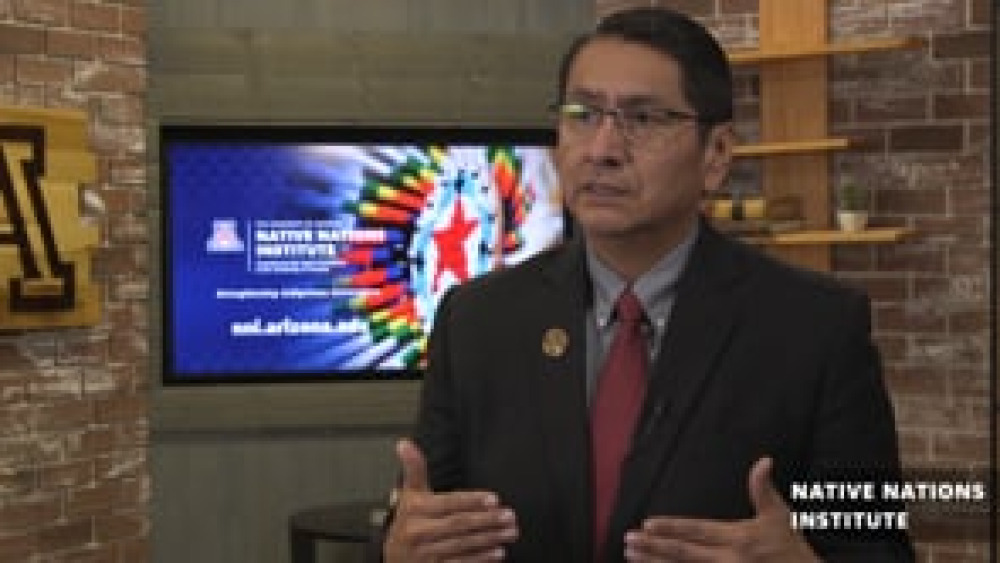
Navajo Nation President Jonathan Nez: Native Nation Building for the Navajo Nation
Navajo Nation President Jonathan Nez visited the University of Arizona and gave his views on making governance work for people in he Navajo Nation. In this brief interview with NNI the President offered his thoughts on Native Nation Building and the way it is utilized for the…
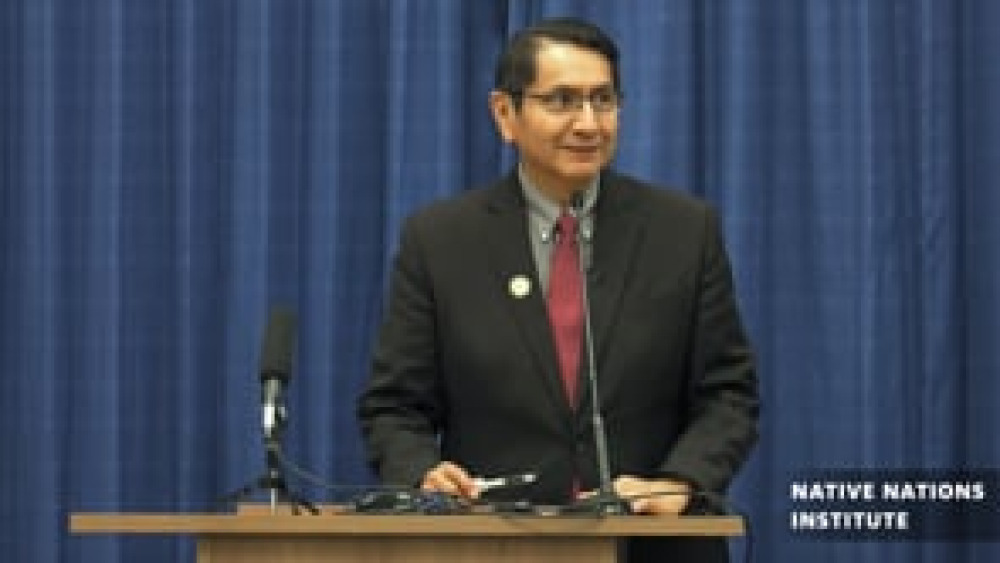
Navajo Nation President Jonathan Nez Distinguished Tribal Leaders Lecture
The Indigenous Peoples Law and Policy Program hosted the Distinguished Tribal Leaders Lecture at the University of Arizona James E Rogers College of Law featuring the recently elected Navajo Nation President Jonathan Nez. The president gave his views on working for a Native Nation and making…
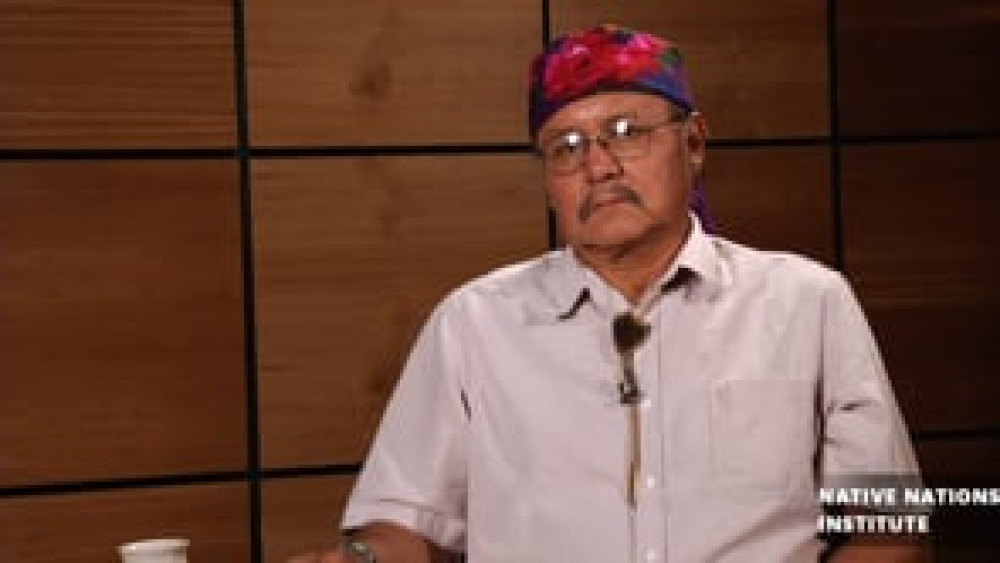
Avery Denny: Origins of Navajo Leadership
Avery Denny is a member of Diné Medicine Man’s Association and is faculty at the Center for Diné Studies at Diné college Diné hatáli. As an instructor for over 29 years, he has taught courses on herbology, holistic healing, and Diné culture, oral history and philosophy. Avery…
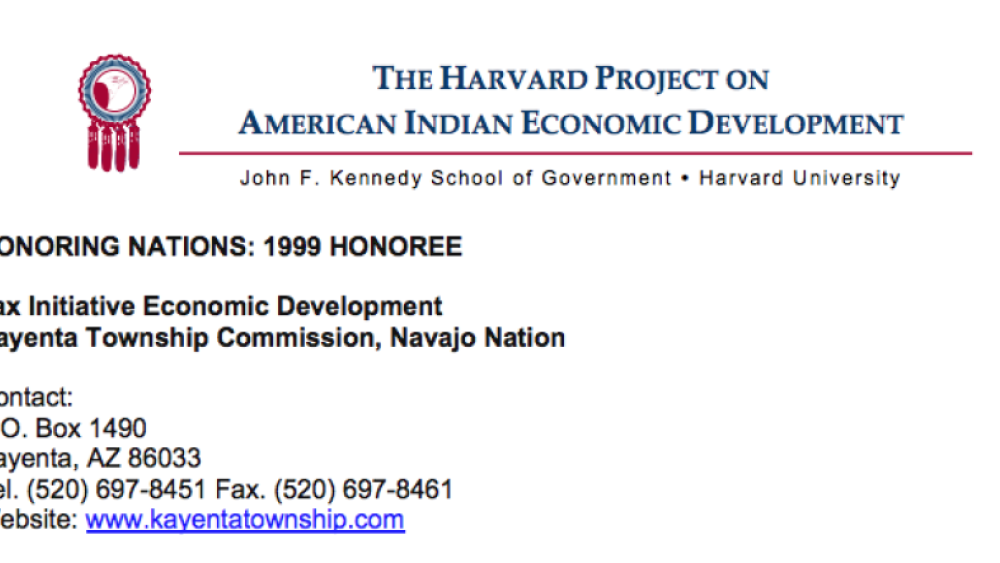
Kayenta Township Tax Initiative for Economic Development
In 1997, Kayenta became the first township on the Navajo Nation to take advantage of new opportunities for local governmental authority by implementing a 2.5% retail tax that brings in hundreds of thousands of dollars annually. This revenue has enabled the Township to build a solid waste transfer…
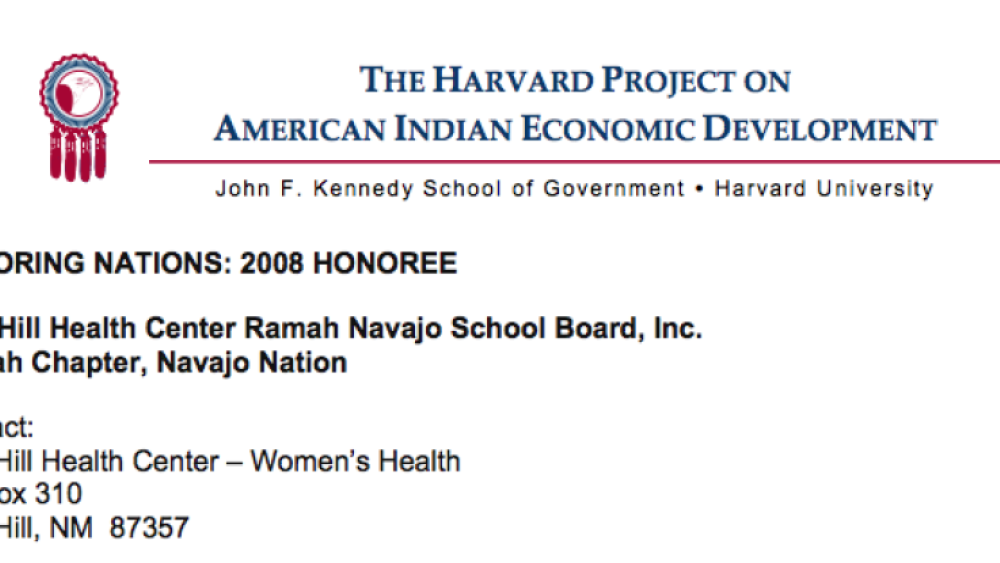
Navajo's Pine Hill Health Center
In the Ramah Chapter of the Navajo Nation–as in many parts of Indian Country–late detection of breast cancer leads to disproportionally high rates of breast cancer mortality. Ramah Navajo’s Pine Hill Health Center devised a creative response: it launched a series of "Mammo Days," educational and…
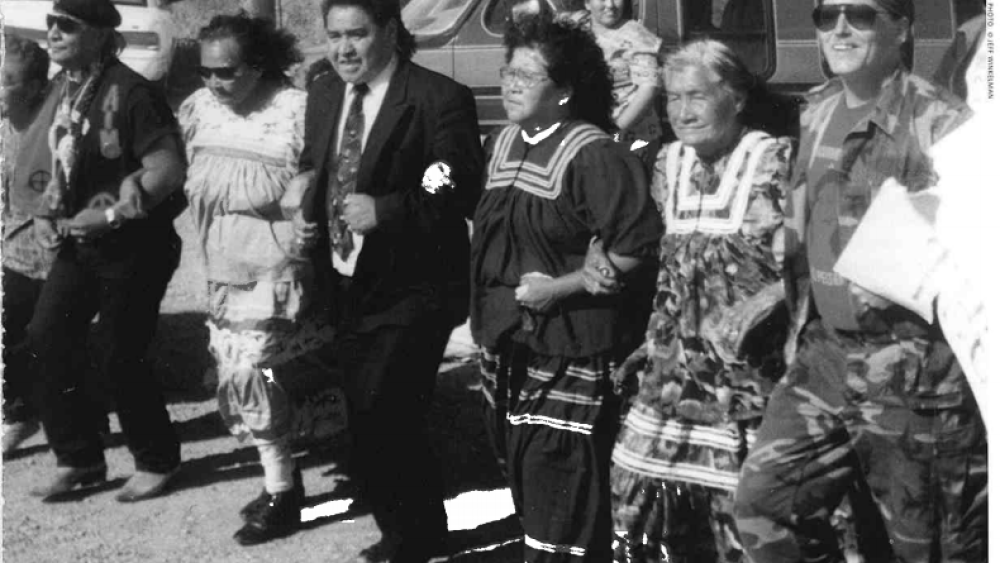
Navajo Treatment Center for Children and Their Family
Responding to high rates of child abuse and neglect, the Navajo Child Special Advocacy Project was launched in 1990 to provide Western and Navajo therapy to victims of sexual abuse between the ages of 3 and 17. With five offices on the Reservation, the project administers Navajo diagnosis,…
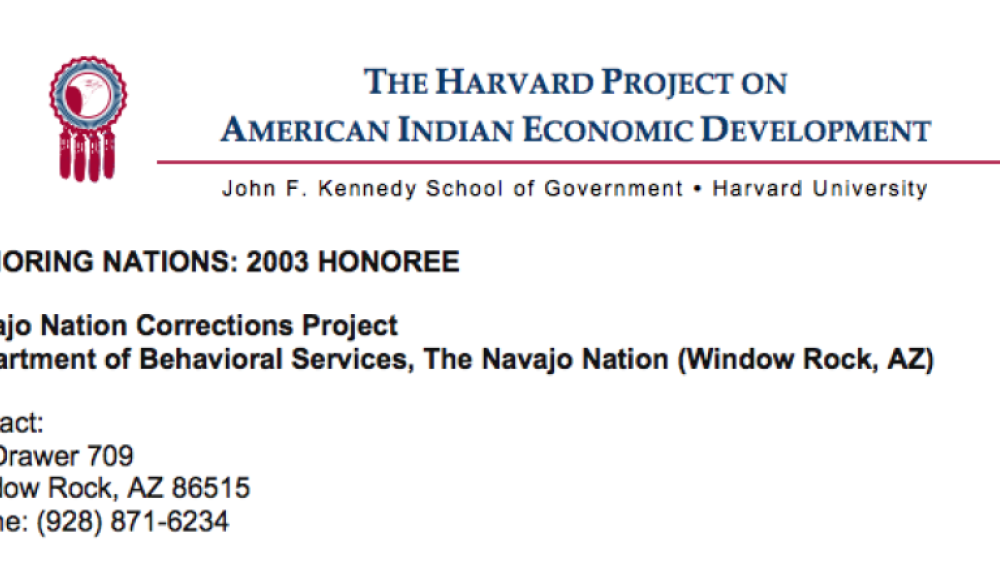
Navajo Nation Corrections Project
Established in 1983, the Corrections Project facilitates, coordinates, and advocates for the use of spiritual ceremonies, cultural activities, and counseling for Navajo and other Indians in correctional facilities. As the liaison between inmates, their families, and Indian and non-Indian government…
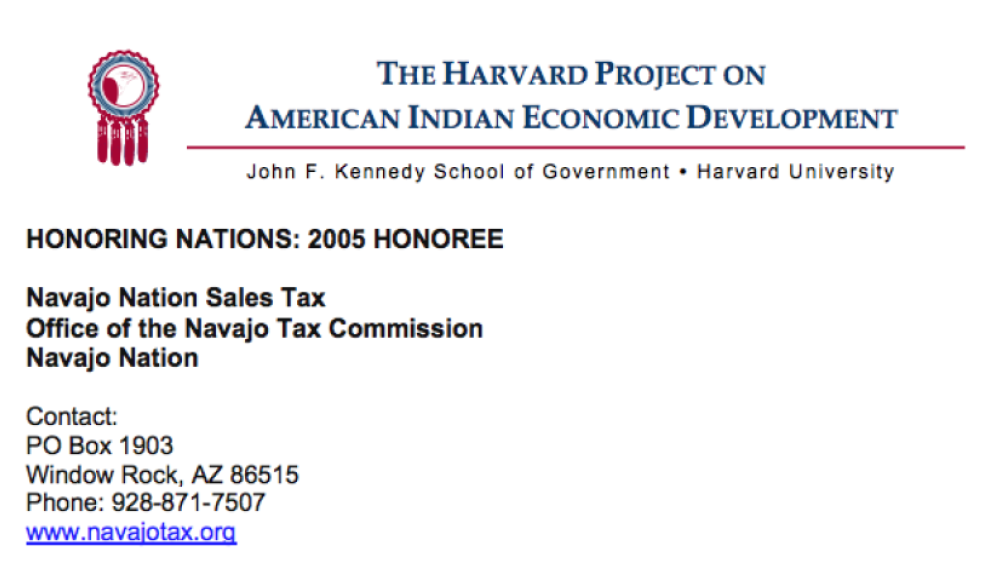
Navajo Nation Sales Tax
Challenges facing sovereign nations include how to support themselves financially, run their governments, and meet the needs of their peoples. In 1974, the Navajo Nation established a Navajo Tax Commission. Following a US Supreme Court decision affirming the Nation’s right to impose taxes, the…
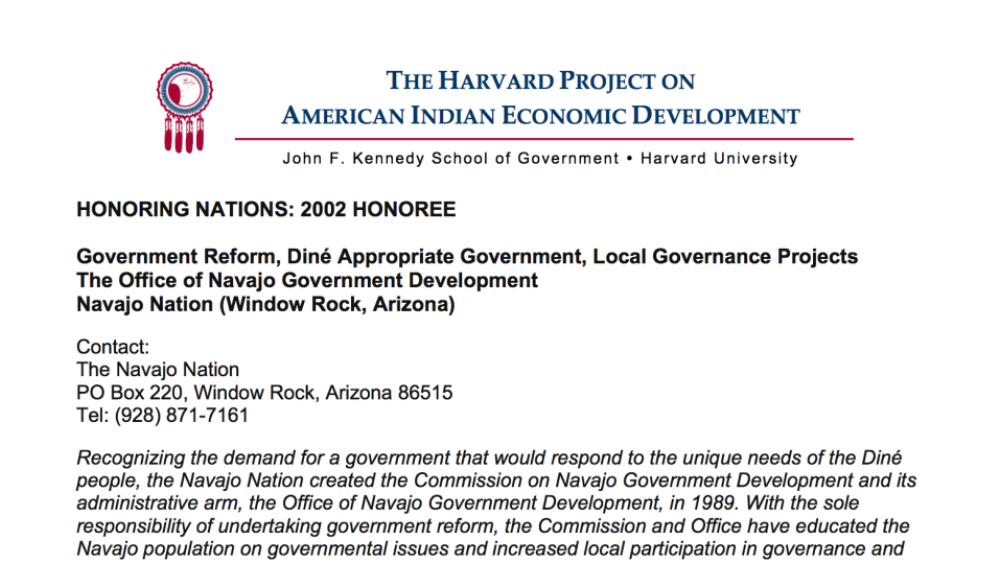
Diné (Navajo) Local Governance Projects
Formed in 1989 by the Navajo Nation Council, the Office of Navajo Government Development works with the Diné people and their elected leaders to conduct government reform, foster the incorporation of Navajo culture and tradition into the Navajo Nation Code, and facilitate the transference of…
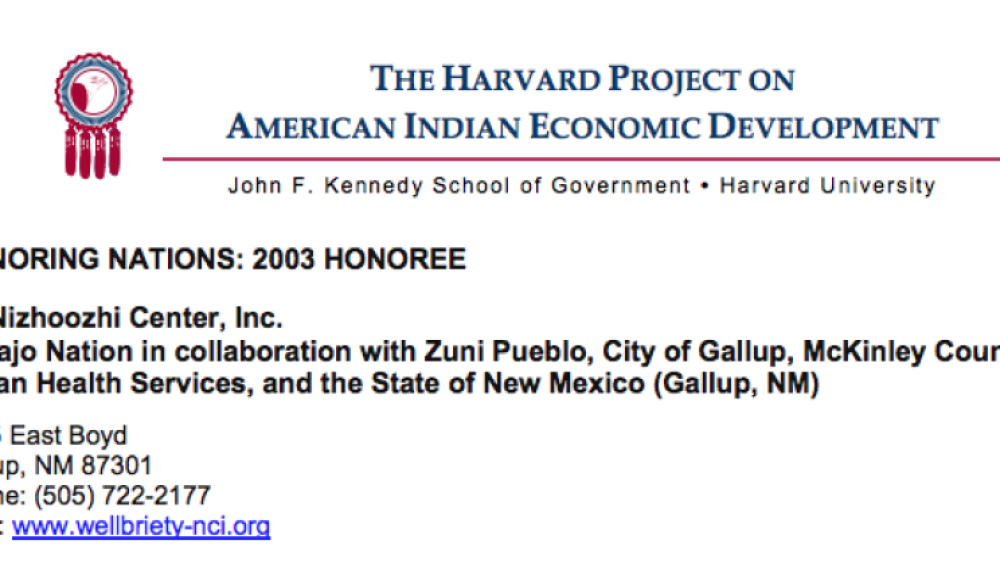
Navajo Nation's Na'Nizhoozhi Center, Inc.
Responding to the distressing rates of accidents, deaths, and other alcohol-related problems in Gallup, NM, the Navajo Nation partnered with Zuni Pueblo, the City of Gallup, McKinley County, and the State of New Mexico to establish the Na’Nizhoozhi Center in 1992. The Center has been an effective…
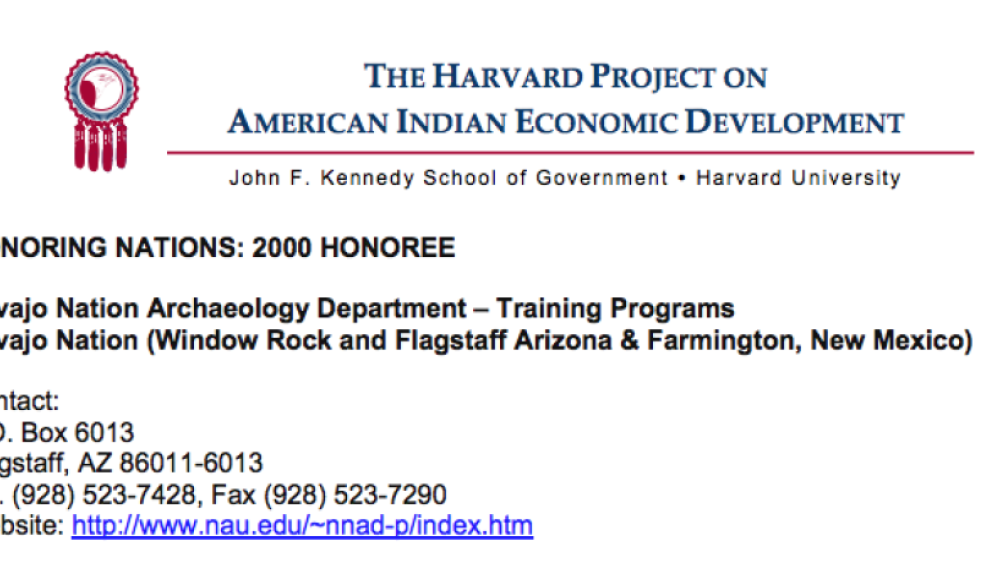
Navajo Nation Archaeology Department Training Programs
The Navajo Nation Archaeology Department was created in 1977 to facilitate historic preservation on Navajo Nation lands as mandated by both US and tribal government legislation. In 1988 and again in 1993, the Department expanded to include training programs, undertaken in partnership with Northern…
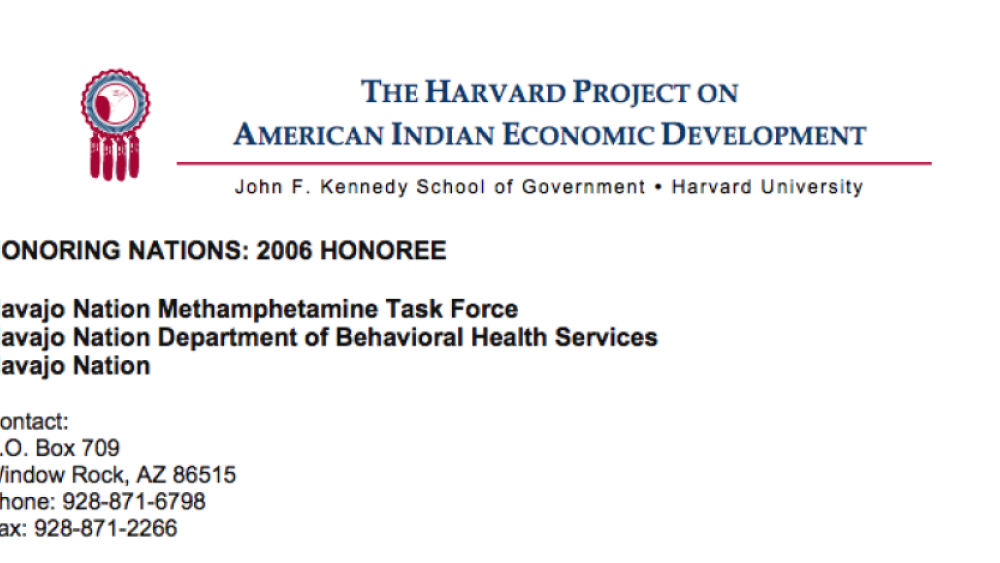
Navajo Methamphetamine Task Force
Taking a proactive stance on policy issues, options, and recommendations in the areas of prevention, treatment, and/or enforcement, the Methamphetamine Task Forces actively combat a tidal wave of destruction within their communities. Drawing upon education, community involvement, cultural…
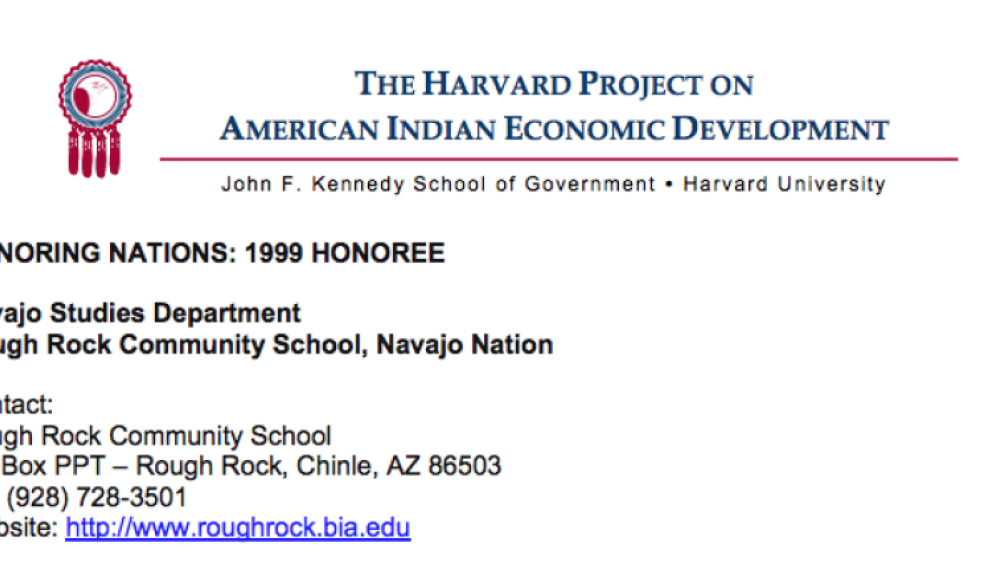
Navajo Studies Department
Created in 1966 as the first contract school in the country, Rough Rock is a Navajo-run institution that combines traditional Navajo learning with Western education. Its Navajo Studies curriculum, which addresses such subjects as culture, history, and language, was named by the Tribal Council as…
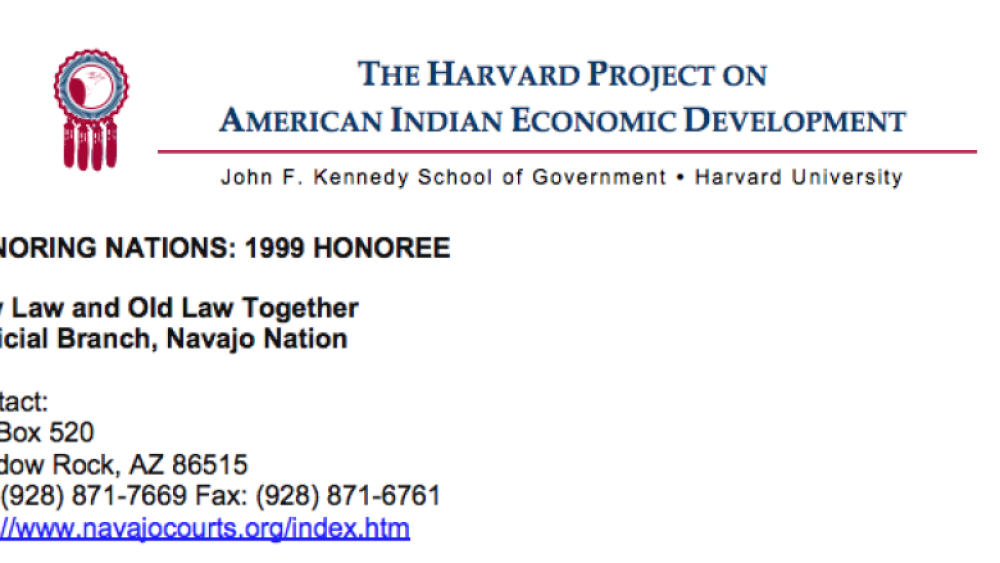
Navajo Nation Judicial Branch: New Law and Old Law Together
The Judicial Branch of the Navajo Nation seeks to revive and strengthen traditional common law while ensuring the efficacy of the Nation’s western-based court model adopted by the Nation. With over 250 Peacemakers among its seven court districts, the Judicial Branch utilizes traditional methods of…
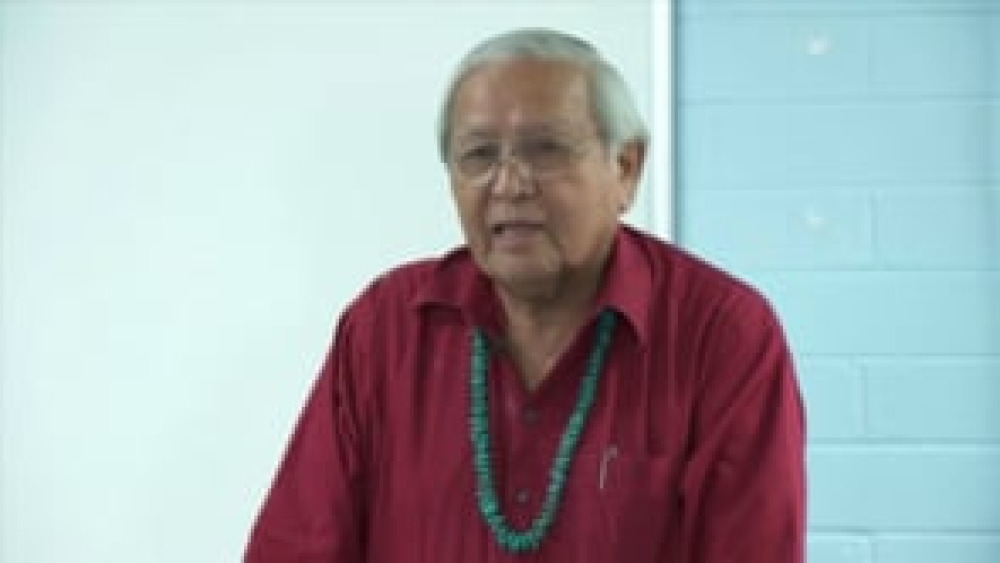
Peterson Zah: Native Nation Building: The Place of Education
Dr. Peterson Zah, former Chairman and President of the Navajo Nation, discusses the importance of higher education in empowering Native nations' efforts to achieve their nation-building goals. He also discusses the Navajo Nation Permanent Trust Fund as an example of the strategic orientation that…
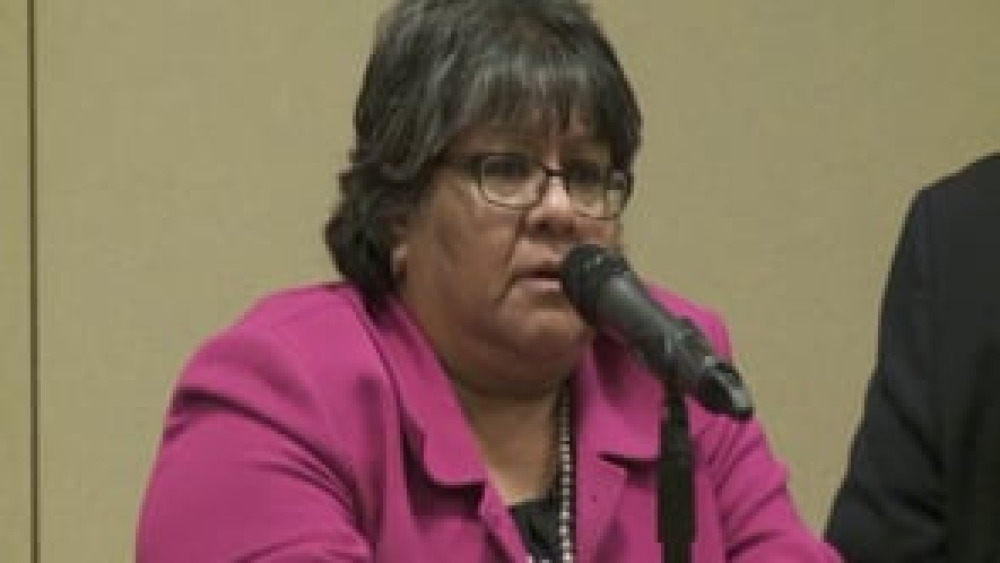
Luann Leonard, Stephen Roe Lewis and Walter Phelps: Bridging the Gap: How Native Culture Forges Native Leaders
Luann Leonard (Hopi), Stephen Roe Lewis (Gila River Indian Community), and Walter Phelps (Navajo) discuss how their personal approaches to leadership have been and continue to be informed by their Native nations' distinct cultures and core values and those keepers of the culture in their…
